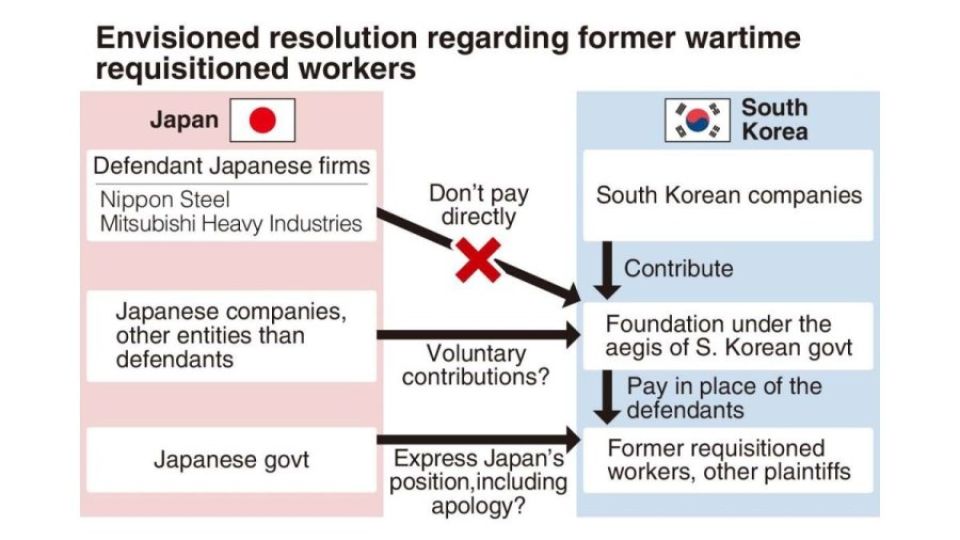February 1, 2023
TOKYO – The Japanese and South Korean governments intend not to involve two Japanese firms in South Korea’s proposed resolution to the issue of former wartime requisitioned workers, according to sources related to both governments.
Seoul apparently decided it would be difficult to have the Japanese companies directly involved, such as having them provide financial support for former requisitioned workers from the Korean Peninsula, due to the Japanese government’s firm position that the issue was resolved under the 1965 Agreement on the Settlement of Problems concerning Property and Claims and on Economic Cooperation between Japan and the Republic of Korea.
In 2018, the South Korean Supreme Court ruled that Nippon Steel and Sumitomo Metal Corp. (current Nippon Steel Corp.) and Mitsubishi Heavy Industries Ltd. must pay damages to former requisitioned workers and other plaintiffs.
The rulings run counter to Japan’s position that the issue of claims was “settled completely and finally” under the 1965 bilateral agreement, and the Japanese firms have refused to pay the damages. The plaintiffs are facilitating procedures to auction off assets of the firms in South Korea.
In January, the South Korean government proposed that the Foundation for Victims of Forced Mobilization by Imperial Japan, a foundation under the aegis of the South Korean government, would pay funds equivalent to the compensation to the lawsuit’s plaintiffs, in place of the Japanese firms.
The plaintiffs have called on the Japanese firms to contribute money to the foundation. However, the Japanese government has maintained that it cannot allow this, as that would “effectively constitute compensation from Japan.”
Meetings of both governments have led to the policy that contributions from South Korean companies will be the main source of the funds to be paid in place of the Japanese firms.
The primary issue in the future will be how the Japanese side will handle the “sincere response” sought by the South Korean side to resolve the issue.
The Japanese government has said it would not oppose voluntary contributions to the foundation by entities other than the Japanese firms, which has led to such suggestions as contributions from the Japan Business Federation (Keidanren). Contributions by Keidanren, to which the Japanese firms belong, could be seen as money coming indirectly from those businesses.
South Korea also wants the Japanese government to apologize over the issue. The Japanese side is considering reiterating past statements by Japanese prime ministers to express Japan’s reflection on and apology for its colonial rule. The Japanese government intends to narrow down the form and content in consideration of public opinion in Japan.
As the security environment surrounding the two countries has become more severe, the significance of Japan-South Korea relations has been increasing. The Japanese government welcomes the stance of South Korean President Yoon Suk-yeol, who is making efforts to mend bilateral relations, and there are increasingly strong calls within the Japanese government for Seoul’s proposed solution to be adopted.
On Monday, both governments held a director general-level meeting between diplomatic authorities and exchanged opinions over the issue.

